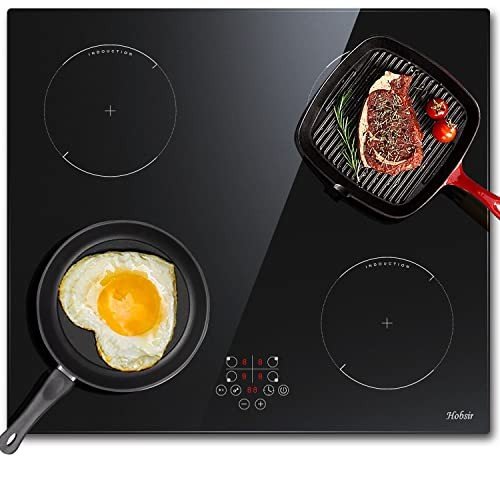10 Things Everybody Hates About Electric Oven & Hob

Understanding Electric Ovens and Hobs: Your Guide to Cooking Efficiency
Electric ovens and hobs have changed the cooking landscape, using home cooks and professional chefs a reliable, efficient, and consistent method to prepare meals. As technological advancements continue to affect home appliance design, the performance and performance of electric cooking systems have significantly enhanced. This post looks into the functions, benefits, and factors to consider surrounding electric ovens and hobs, offering a thorough overview for anyone wanting to upgrade or invest in kitchen devices.
What Are Electric Ovens and Hobs?
Electric ovens are kitchen home appliances developed for baking, broiling, roasting, and other cooking techniques that need regulated heat. They make use of electric coils or convected heat components to create and maintain the wanted temperature. Electric hobs, frequently described as electric cooktops, are flat surface areas with heating components that enable pots and pans to be put directly on them for cooking.
Table 1: Key Differences Between Electric Ovens and Hobs
| Feature | Electric Oven | Electric Hob |
|---|---|---|
| Main Function | Baking, roasting, broiling | Heating pots and pans for cooking |
| Heating Method | Electric coils or radiant components | Induction, glowing, or ceramic aspects |
| Operation Temperature Range | Up to 500 ° F (260 ° C | ) Varies by design; normally lower than ovens |
| Cooking Styles | Versatile; appropriate for various meals | Primarily stovetop cooking methods |
| Area Requirement | Typically built into cabinets | Often standalone or built-in alternatives |
| Energy Consumption | Normally higher, depending on use | More energy-efficient with induction hobs |
Advantages of Electric Ovens and Hobs
When thinking about electric ovens and hobs, it's important to comprehend their various advantages, which can enhance the cooking experience.
1. Consistent Heating
Electric ovens and hobs supply even and constant heating, which is essential for numerous cooking techniques. This ensures that meals cook evenly, decreasing the opportunities of overcooking or undercooking certain locations of food.
2. Safety Features
Modern electric ovens and hobs come equipped with numerous security functions to prevent accidents in the kitchen. For Fan Oven Sales , lots of designs consist of automated shut-off functions, hot surface indicators, and kid security locks.
3. Easy to Use
Unlike gas designs, electric ovens and hobs are simple and user-friendly. The simplicity of turning on a dial or pushing a button makes them accessible for cooks of all skill levels.
4. Versatile Cooking Options
With various cooking methods possible, from baking to simmering, electric models are versatile enough to accommodate a wide variety of culinary designs and choices.
5. Cleaning up and Maintenance
Electric ovens typically include smooth surface areas that are simple to clean, especially models with self-cleaning abilities. Hobs, especially induction types, also provide a flat surface area that is easy to wipe down, making upkeep a breeze.
Popular Types of Electric Ovens:
- Conventional Ovens: Ideal for traditional baking and roasting.
- Convection Ovens: Circulate hot air for quicker, even cooking.
- Microwave Ovens: Use electro-magnetic radiation for quick heating and cooking.
- Toaster Ovens: Small counter top ovens for fast tasks.
Popular Types of Electric Hobs:
- Induction Hobs: Utilize magnetic fields for quick heating and energy performance.
- Radiant Hobs: Feature electric coils that heat up to cook food.
- Ceramic Hobs: Offer a smooth surface area and are simple to clean.
Factors To Consider When Choosing Electric Ovens and Hobs
While electric ovens and hobs provide various advantages, several elements need to be taken into consideration to guarantee the best suitable for your kitchen:
1. Area Availability
Assess the readily available kitchen area before buying. Figure out whether you require a built-in design or a freestanding home appliance, and measure the measurements thoroughly to ensure a great fit.
2. Cooking Needs
Recognize your cooking routines and preferences. If you regularly bake large quantities or cook complex meals, think about an oven with sophisticated features like convection settings or several racks.
3. Energy Efficiency
Search for energy-efficient models that can help save on energy expenses with time. Energy Star-rated devices can be particularly affordable.
4. Spending plan
Set a realistic budget that represents both the preliminary purchase and continuous operating expense. In addition to the device expense, factor in installation and possible repair work.
5. Extra Features
Think about whether functions like wise innovation, programmable settings, or steam cooking options are essential for your cooking style.
Frequently asked question Section
Q: How do I clean my electric oven?
A: Most electric ovens included self-cleaning alternatives. If your model does not have this feature, permit the oven to cool, then wipe down surfaces with a mixture of baking soda and water or a business oven cleaner.
Q: Is induction cooking safe?
A: Yes, induction cooking is considered safe as the heating aspect just activates when compatible cookware is in contact with it, minimizing the danger of burns.
Q: How long does it consider an electric oven to preheat?
A: Preheating times vary based upon the oven's model and temperature level setting but generally range from 10 to 15 minutes.
Q: Can I use any cookware on an induction hob?
A: No, only ferromagnetic cookware is suitable with induction hobs. Examine for induction compatibility before use to avoid damage.
Q: What is the distinction in between a stove and a traditional electric oven?
A: A stove includes a fan that distributes hot air, guaranteeing even cooking and reduced cooking times compared to a conventional electric oven, which does not have this feature.
Electric ovens and hobs offer a modern solution to different cooking needs, offering performance and reliability in the kitchen. As customers evaluate their options, comprehending the functions, types, and factors to consider will allow them to make educated choices. Whether one is a periodic cook or a culinary enthusiast, electric home appliances can boost the general cooking experience, bringing benefit and creativity to the table.

